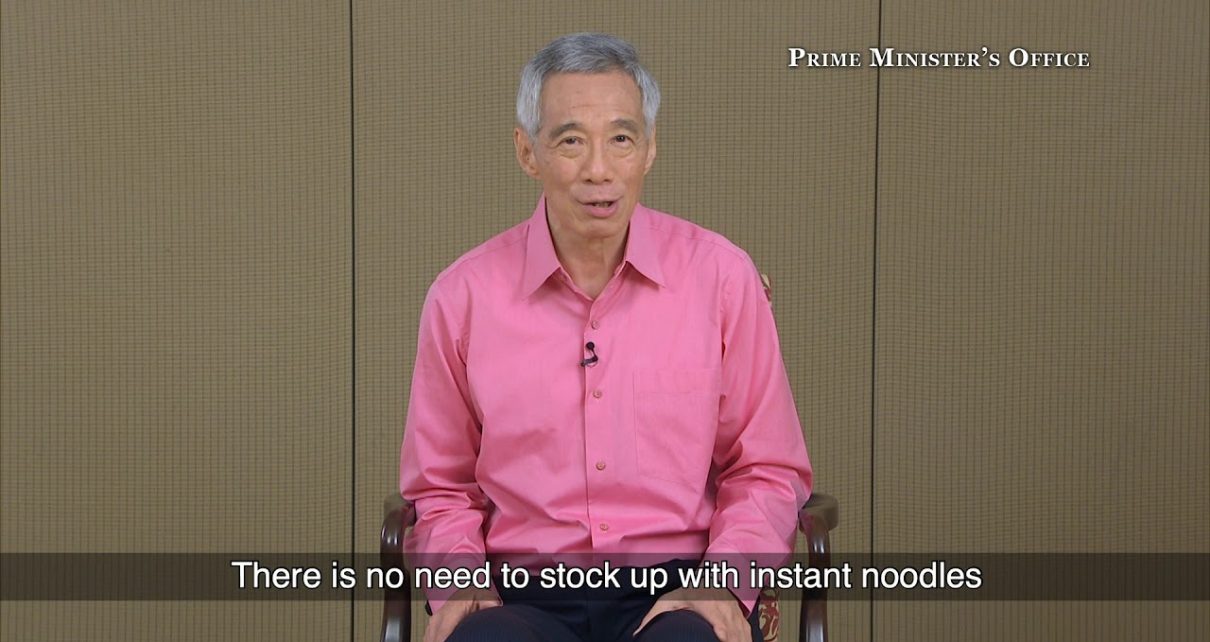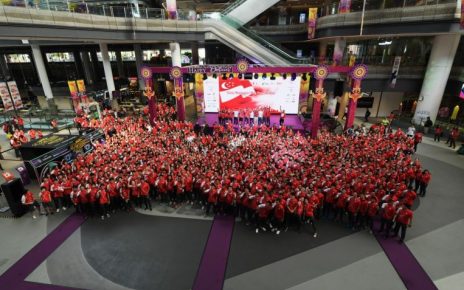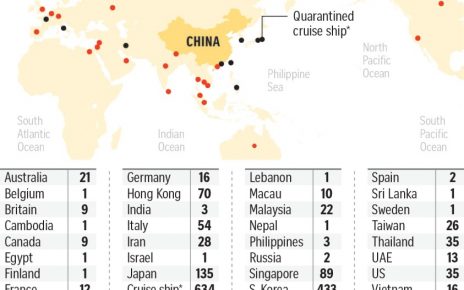
The coronavirus outbreak is a test of Singapore’s social cohesion and psychological resilience, said Prime Minister Lee Hsien Loong, as the country announced seven new confirmed cases yesterday.
It is the biggest jump reported in a single day, bringing the total number of people infected here to 40. Four are in critical condition, the Ministry of Health (MOH) said in an update last night.
A possible new cluster has also been identified, linked to The Life Church and Missions Singapore in Paya Lebar, the third after a medical products shop in Lavender and the Grand Hyatt Singapore.
Among the new confirmed cases are a taxi driver and a private-hire car driver. MOH added that for the general public, the risk of infection from transient contact, such as on public transport or in public places, is assessed to be low.
In a recorded video message released earlier in the evening, PM Lee urged Singaporeans to take courage and see through the current stressful time together.
“Fear and anxiety are natural human reactions. We all want to protect ourselves and our families from what is still a new and unknown disease,” he said.
PM Lee added: “But fear can do more harm than the virus itself. It can make us panic, or do things which make matters worse, like circulating rumours online, hoarding face masks or food, or blaming particular groups for the outbreak.”
Instead, he held up as positive examples those who have gone the extra mile by volunteering to distribute masks to households, or delivering food to schoolmates on leave of absence.
Healthcare workers are on the front line treating patients, while others – including business federations, unions and public transport workers – are keeping Singapore running, he said.
“They are inspirations to all of us,” said PM Lee, who also delivered his message in Mandarin and Malay. “This is what it means to be Singaporean. This is who we are.”
Singapore is much better prepared to deal with the new coronavirus than it was 17 years ago, when the severe acute respiratory syndrome (Sars) outbreak occurred, PM Lee said.
It has stockpiled adequate supplies of masks and personal protective equipment, and expanded and upgraded medical facilities, including the new National Centre for Infectious Diseases.
It also has more advanced research capabilities to study the virus, and its doctors and nurses are better trained to deal with the situation.
“We are psychologically better prepared too,” PM Lee added. “Singaporeans know what to expect, and how to react. Most importantly, having overcome Sars once, we know that we can pull through this too.”
He pointed out that although the new virus is more infectious than Sars – and therefore harder to stop from spreading – it is much less dangerous.
About 10 per cent of those who contracted Sars died. But outside Hubei, the epicentre of the coronavirus outbreak, the death rate is only 0.2 per cent so far.
In comparison, seasonal influenza has a death rate of 0.1 per cent.
In Singapore, MOH said that among the 40 confirmed cases, two have been discharged, and most of the rest are stable or improving.
As of noon yesterday, 438 of the suspect cases have tested negative, while test results for the remaining 181 cases are pending.
MOH has so far identified 758 close contacts. Of the 663 who are still in Singapore, 647 have been contacted and are being quarantined or isolated.
Efforts are ongoing to contact the remaining 16 close contacts.
“But the situation is still evolving. Every day brings new developments, and we have to respond promptly and dynamically,” PM Lee said. On Friday, Singapore raised the outbreak alert level to orange as more cases emerged with no known links to previous cases, or travel history to China.
Alongside moves to tighten access to hospitals and take extra precautions at large public events, PM Lee said he has postponed this year’s Chinese New Year Istana Garden Party for grassroots leaders, which was to be held today.
If the numbers keep growing, Singapore will have to reconsider its strategy at some point, PM Lee said. This could mean encouraging those with mild symptoms to see a GP and stay at home, letting hospitals and healthcare workers focus on the most vulnerable patients.
He urged Singaporeans to stay united and resolute.
“Take sensible precautions, help one another, stay calm, and carry on with our lives,” he said.


